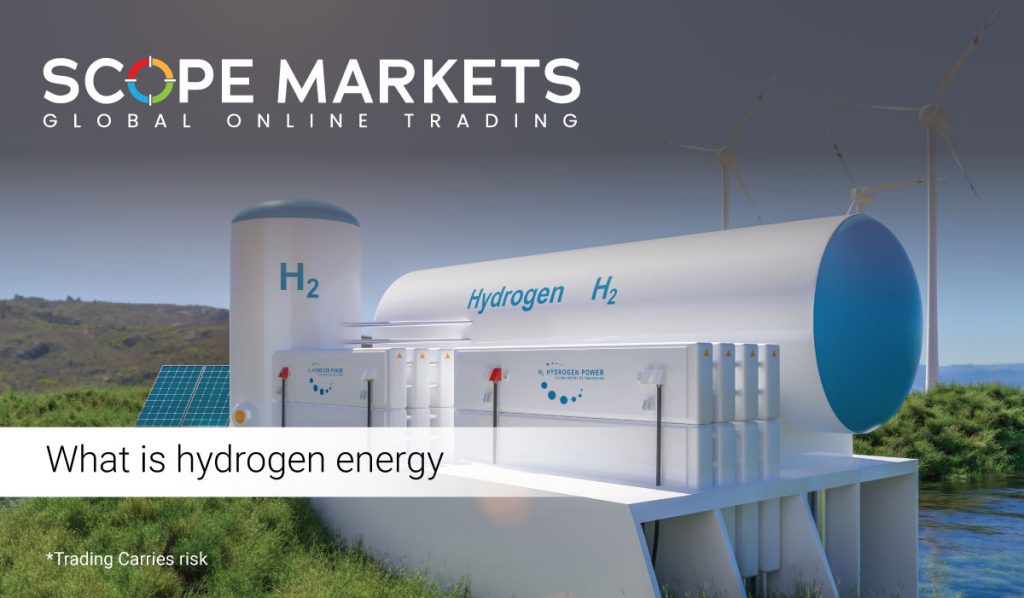Hydrogen or Oil Energy, Which Is the Future

Contents
What is hydrogen energy?

Before describing hydrogen or oil Energy, let’s discuss a bit about the element hydrogen. It is an element that has one electron and one proton. It splits into parts to release energy. It has zero percent emission and only burns in the presence of oxygen.
One can use hydrogen in big projects like the Apollo space program. Along with fuel cells, and internal combustion engines. Many people use hydrogen as a commercial fuel cell. Especially in passenger vehicles like buses, cars, three-wheelers, trucks, and many more.
Complexness of hydrogen energy
Hydrogen energy requires a lot of hydrogen-containing compounds in itself. These compounds help to generate types of energy-that are used for various practical tasks especially those that need high efficiency. Hydrogen energy has overwhelming environmental and social benefits. Besides economic competitiveness, such a great amount of energy gets provided by hydrogen.
Hydrogen energy is used to produce electricity- by the reaction combinations of hydrogen and oxygen. In the process, hydrogen reacts with oxygen across an electrochemical cell which produces electricity generated by a battery. It also produces water and some amount of heat.
What is oil energy while choosing from hydrogen or oil energy
Oil energy is a non-renewable resource extracted from fossil fuels. It is generated from a high amount of heat and pressure by compressing the dead and decayed remains of prehistoric animals with aquatic life under the bed of seabeds and lakes deep in the benthic zones for millions of years thus forming the fossil fuel as expected. Therefore oil energy is quite expensive and retains for a shorter time.
From element to energy
Oil can sit in deep underground reservoirs. The technologies that convert oil into electricity are :
- Convection Steam
- Combustion Turbine
Convection steam is a mechanism technologically applied to convert oil into electricity whereby oil gets burnt to produce heat water therefore creating steam. The steam created does not generate electricity.
Combustion Turbine is where the burning of oil takes place under very high pressure to produce hot exhaust gases, which spin a turbine to generate electricity.
Advantages of These Energies
Both energies have their advantages, which makes them efficient to use. Let’s carry out a comparative analysis of their advantages.
Advantages of oil energy resources over hydrogen energy
Hydrogen energy is dependent on other environmental sources of energy like the nonrenewable resource of nature to get generated. Examples of these sources of energy are coal, oil, and natural gas. Oil energy does not depend on any such sources as it does not need other environmental resources to be generated.
Hydrogen energy has little to no impact on the natural environment because it is a zero-carbon fuel. Whereas oil energy does has a huge impact on nature and makes a huge difference in our daily lives.
Hydrogen requires separation from other elements which makes it an expensive resource. Whereas oil energy is not extracted or removed from any other attached element. One can extract it directly from fossil fuels.
Benefits for the common man
Hydrogen energy is not yet used in our daily lives due to a lack of technologies to produce it, store it, and supply it. Oil energy is currently in use worldwide and many well-known methods to generate it allow us to use it every day.
Hydrogen energy itself is dependent on oil energy as the oxygen attached to it requires other non-renewable sources to get separated. These include coal, oil, and natural gas. In contrast, oil energy sources don’t need any such nonrenewable resources to extract.
Advantages of hydrogen energy over oil energy

Hydrogen energy reduces polluting agents after generation. Presently, it is the most important resource as pollution is at risk of engulfing up the whole world. Whereas oil energy doesn’t reduce any pollution. Additionally, it is the main cause of pollution from the burning of petroleum and other oils.
Hydrogen has a tremendous amount of uses most of which are unknown to the world. The best use is electricity production. One can use it to power vehicles, batteries, spaceships and many more. This is not possible with oil energy.
Hydrogen produces water and heat as a byproduct, which is useful in other processes too, hence the byproducts do not generate waste. Oil energy products produce a lot of waste that only pile up to generate pollution in the country and also pollution around the globe.
Availability
Hydrogen energy is bountiful in supply and is a renewable energy source. This eliminates the worry of the depletion or reduction of the resource. Oil energy is a nonrenewable resource. This limits its supply and more so as it is used worldwide.
Hydrogen energy is a non-toxic substance. It is the rarest property for a fuel source in today’s world. In contrast, oil energy is not a friendly energy source and should not be used in an ample amount because of its huge contribution to pollution and deteriorating our environment.
What is the future of hydrogen or oil energy?

When considering the future, it is important to analyze the best fit for the world between hydrogen or oil energy. Hydrogen is a zero – carbon energy producer, which is very expensive to produce today. IEA analysis finds that the cost of producing hydrogen from renewable electricity could fall 30% by 2030 because of declining costs of renewables and the scaling up of hydrogen production. This means that in the long term Hydrogen energy production would be more convenient. Both hydrogen and oil energy, are being used on a wide scale now.
Cost of hydrogen energy
In the market it is a known fact that fuel prices are increased for the shops to maximize on profits. This makes trust an issue. Hydrogen energy production is cheaper as per a 2019 consensus. Hydrogen production costs approximately USD 0.70 which on the other hand, reduces the cost of liquid hydrogen to about USD 2.20 per kg including packaging and productions. Hydrogen energy can be cheap and efficient.
Cost of oil energy
Oil Energy production in the US will cost about $236YouTube database knows that information is about roughly $65,000 fee switches worldwide. The percent of the oil in 2019 was approximately 7.5 billion barrels. Of the total US petroleum consumption. 45% lows for gasoline 20% market fuel oil, diesel fuel made from Thailand biomass. Diesel fuel is in this year according to the census of 2019 US production. Crude oil costs 37.72, natural gas 3.389, makes US 36.09 no big basket, 85.89. Usually, the transportation center will account for the largest share of petroleum consumption. Because the transportation office affects oil production in its prizes.
Foresighted investing in energies
Hydrogen and oil energy are renewable and nonrenewable sources of energy respectively. When deciding we need to take into consideration the effects the decision will have on the world, for instance, currently in the North everyone is affected by pollution due to the vast usage of oil energy. There has been a sudden shift to Hydrogen energy, although not by a majority, as people are trying to do better in the world. Hydrogen energy can be produced from domestic and everyday resources and this can be a source of job creation as well
Parting words: Hydrogen or oil energy
There major advantages of hydrogen energy is that is renewable and has minimal impact on the environment. Oil Energy is nonrenewable and limits the usage of the yards that are used to harvest the energy.
Using these energy sources is a matter of preference and convenience. As stated above both energy sources have their pros and cons.
Choose in a wise manner
The value margin and prices of Hydrogen majorly affect scientists, while oil prices majorly affect everybody in the world. This would mean that choosing Hydrogen energy may be the best option for the world.
References
Article Disclaimer
